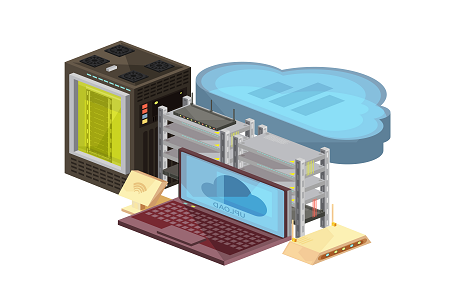Salient IT Services › Data backup services Roseville
What you need to know about data backup services in Roseville
For today’s businesses having an effective data backup process in place is a must. The good news is that it’s entirely feasible to do so, even when you’re working to a very tight budget. With that in mind, here is a quick guide to what you need to know about data backup services in Roseville.
Data backups are (or should be) a snapshot of your production data
In the old days of data centers, and before data-protection laws became what they are now, there was very little in the way of direct financial consequences for poor data-management practices. Even back then, there were several indirect financial consequences, such as increasing the time it took to back up data and to restore from data backups, but as these were indirect it was easier for the connection to be missed.
These days, however, most SMBs are likely to be mainly, if not wholly, in the cloud. In the cloud, there is a very direct link between consumption and costs. This means that poor data-management practices will immediately result in excessive costs and, what’s more, those costs will be amplified over your data backups (of which there should usually be two, one local and one off-site, which usually means in a second cloud) and could well continue to feed through into any data archives you hold.
This means that, as a minimum, you need to do everything you reasonably can to minimize the quantity of data you collect so that every data item in your production system is relevant, as well as complete, accurate and in a standardized format. Similarly, you need to ensure that dormant data is promptly removed from your production systems. If you know it needs to be kept for compliance purposes (or you’re just not comfortable deleting it), then move it into a data archive. Data archives use much slower storage, which is priced much more affordably.
For completeness, you must also have a process for purging sensitive data from your data archive as soon as the compliance period has passed. This is often a legal requirement and it’s always good business practice. It’s strongly recommended to have a process for removing all data from your data archive when it is no longer needed/wanted. Even though archival storage is much more affordable than the storage needed for production data, keeping excess data does still generate excess costs the average SMB will very much want to avoid.

Data backups (and data archives) must comply with the law/regulations
On the one hand, this is arguably stating the obvious. On the other hand, it’s worth mentioning because it requires active effort to keep all your data appropriately and safely. First of all, you need to make sure you understand all relevant laws and regulations (which are periodically updated, although changes are usually advertised well in advance of their effective date). Secondly, you need to make sure that the relevant laws and regulations are applied at all times regardless of how much data you have or how busy you are.
This means that you have to implement effective data governance supported by effective data-management processes, which usually have to be automated. If this is too much for your in-house expertise, then you can (indeed must) enlist the help of an IT services vendor.
Defining your objectives realistically is essential
In the context of data backups, the term “objectives” effectively means Recovery Time Objectives and Recovery Point Objectives. Recovery Time Objectives define how quickly you need your data to be back online after an outage. Recovery Point Objectives define how often you need to take data backups.
Your RTOs will influence what speed of storage you need and your RPOs will influence how much bandwidth you need. This means that you need to balance the goal of maximizing productivity (or minimizing downtime, however you want to look at it) with the goal of minimizing the cost of taking your data backups. On the one hand, these goals are complete opposites. On the other hand, astute data management can go a long way to reconciling them.
In the cloud, it is feasible to group your data items into categories and to set individual RTOs and RPOs for each category. This allows you to deploy the most expensive resources (e.g. the fastest storage) where they are of most benefit, even if that requires you to pare back slightly on the resources you allocate to less important data. This approach lays the foundation for a tiered recovery strategy in which data is restored according to its priority for the business.
If you’d like to speak to a reputable and experienced data backup services provider in Roseville, please click here now to contact Salient IT.


 (3 votes, average: 3.67 out of 5)
(3 votes, average: 3.67 out of 5)
